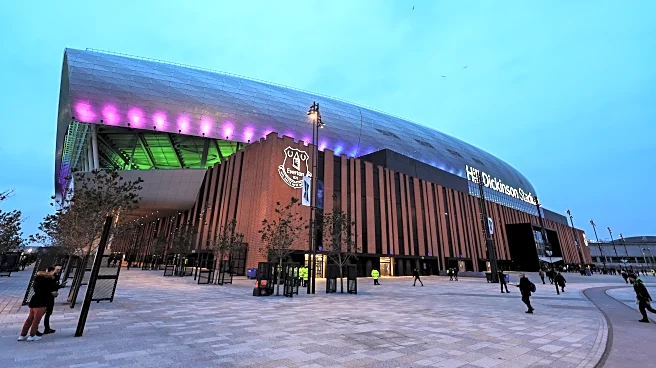What's Happening?
Fans of Billie Eilish have been camping out for days in anticipation of her sold-out concert at Philadelphia's Xfinity Mobile Arena. The concert, part of Eilish's Hit Me Hard and Soft tour, has drawn significant
attention, with some fans lining up as early as Tuesday morning for the Thursday night event. The venue is completely sold out, highlighting the immense popularity of the artist and the dedication of her fanbase. The scene outside the arena is filled with fans wrapped in blankets, eagerly waiting for the doors to open.
Why It's Important?
The sold-out status of Billie Eilish's concert underscores her significant impact on the music industry and her ability to draw large crowds. This event reflects the strong connection between Eilish and her fans, who are willing to camp out for days to secure a spot at her performance. The concert is a testament to Eilish's influence and the demand for live music experiences, which continue to thrive despite challenges in the entertainment industry. The enthusiasm surrounding the event also highlights the economic benefits for local businesses and the venue, as large crowds contribute to increased spending in the area.
What's Next?
As the concert approaches, fans will continue to gather outside the Xfinity Mobile Arena, creating a vibrant atmosphere leading up to the event. The success of this concert may influence future tour planning for Billie Eilish, potentially leading to more shows in larger venues to accommodate her growing fanbase. Additionally, the event could prompt discussions among industry stakeholders about the logistics of managing large crowds and ensuring safety during high-demand performances.
Beyond the Headlines
The dedication of Billie Eilish's fans, as demonstrated by their willingness to camp out for days, reflects broader cultural trends in fandom and the importance of live music experiences. This phenomenon highlights the emotional and social connections that fans form with artists, which can drive significant engagement and loyalty. The event also raises questions about the sustainability of such practices and the potential need for improved infrastructure to support large-scale events.












